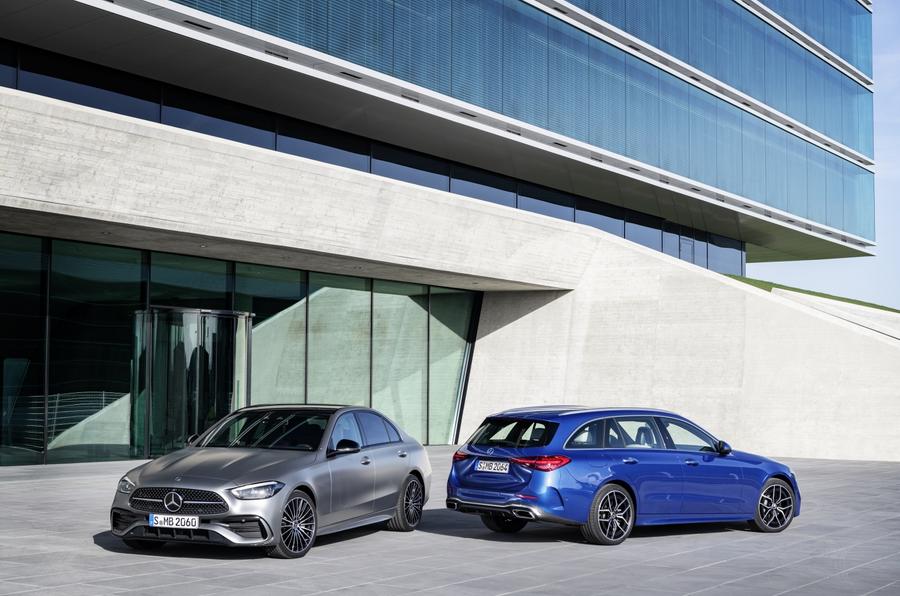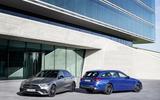Bear with me on this one, because I’d like to talk about data. Yes, a dry old series of numbers does occasionally throw up something interesting.
I was on a call with Mercedes-Benz this week, talking about the new C-Class plug-in hybrid. This all-new car has a considerably larger battery than before, doubling the potential electric-only running from 30-odd miles to around 60. And one of the reasons Mercedes has chosen to do this is customer data.
The figures it pulls from all its customer feedback is that 60-odd miles of electric range is perfectly adequate for what its customers need most of the time. This gives them the flexibility to run in electric mode most of the time, with only an occasional need to resort to the petrol or diesel engine.
As Ruben Voigtländer, responsible for development of the C-Class PHEV, pointed out to me, the customer data is clear: "We check our data from our vehicles and see the daily driving behaviour. From that, you can guess at an optimum what you will need to cover most of your daily commuting trips, and if you look at our data, [customers] cover most of their trips with 100km [62 miles] of range."
Statistics from the UK back this up: the average journey length is just over eight miles. Cars spend hours simply parked up, idle for 96% of their lives.
It makes me wonder if range anxiety shouldn’t be the concern it is. When the Honda E came out, many people queried why it had such a small battery, giving a theoretical range of about 125 miles. But the data shows we shouldn’t be worried. We know the charging infrastructure is improving and we know that electric cars are increasingly able to suck in that juice at ever-faster rates.
Why are we buying cars for the rare, 1% journey? People don’t buy houses on the basis that one day you might throw a party and need to squeeze 60 people in the garden. So you could argue that a car that is built correctly for 99% of your life requirements is all you need.
I’d argue we all need to buy for the majority case and be flexible for those rare occasions you need more. The data says it’s possible.
READ MORE
Honda E review









Join the debate
Add your comment
Assuming you don't have multiple vehicles the vehicle you do have has to cover all eventualities. You may only need to do 400 miles in a day once or twice a year but when you need that range, you really need it. Similarly so many people who do 99% of their mileage solo still end up buying a 'practical' hatchback or SUV when they'd rather have a sports car or a coupe. You can't take 4 passengers and their luggage home from the airport, or a load of rubbish to the tip in a Boxster more's the pity. Same with EV range - you have to cover the outlier journeys as well as the 99%.
That doesn't make sense. A boxster can't do 99% of required journeys. An EV can.
We hire or borrow a vehicle for the few journeys our hatchback and sedan can't do (4WD for camping, truck for moving house). Similarly an EV would have been suitable for 99% of the joourneys I've undertaken over the last several years. A new job requires that I drive 300+ km regularly, so current EVs wouldn't be suitable any more, but I'm sure 500 km ranges will be normal within a few years.
Data is sometimes divorced from reality. If one has no interest in cars and uses them solely as an appliance (many people do), then perhaps the data makes sense. I do longer-than-200 miles drives several times a year. Most involve trips that are planned in advance. From time-to-time, though, there is little planning or lead-time. Either way, having to rent/hire a car for those trips is emphatically not what I would want to do. I enjoy those long drives. I want to enjoy those miles in my car, a car that I chose very carefully, a car that I want to drive, a car that I spent my money on so that I can enjoy driving my car. When I fly somewhere, I rent a car at the destination. Otherwise, I'll drive my own car, thanks. I didn't buy my cars so that I'll have to hire and drive someone else's.
Range anxiety is nothing new for motorcycle riders with tiny fuel tanks, yet I've been all over Europe and survived. As an aside, my dad kept his fuel topped right up all his life "just in case", and never got beyond the local town...
Yes, but it didn't take over an hour to fill your bikes tank at each stop!
Last longish biker ride I did was to the Med and back. Lost count of the fuel stops, and looking for a garage in rural France. Biggish fuel tank now a must on new motorbikes.
On a side note, my diesel Focus can do Cotswolds-Cornwall and back, with enough in the tank to drive locally while I'm at the seaside. Now that's what I call range.